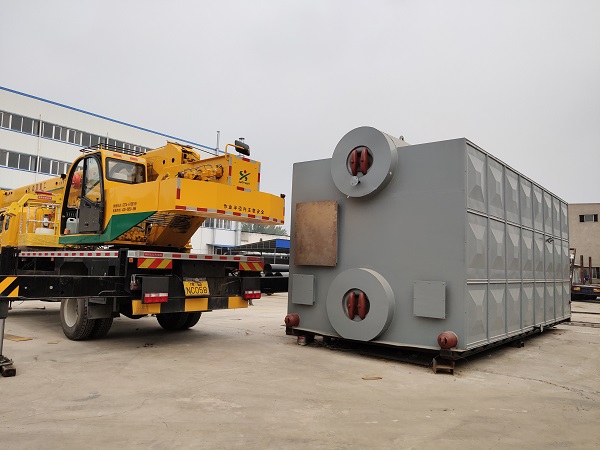Guide: Biomass boilers are the same as ordinary boilers, and scale will appear after a long time. The hazards of scale should not be underestimated. First of all, fuel is wasted and the thermal efficiency of the boiler is reduced. When the boiler is scaled, the heat transfer performance of the heating surface of the boiler becomes worse.
Biomass boilers are the same as ordinary boilers, and scale will appear after a long time. The hazards of scale should not be underestimated. First, it wastes fuel and reduces the thermal efficiency of the boiler. When the boiler is scaled, the heat transfer performance of the heating surface of the boiler becomes worse. The heat released by fuel combustion cannot be effectively transferred to the boiler water. The heat of the exhaust gas is taken away by the flue gas, which causes the exhaust gas temperature to increase, the exhaust gas heat loss increases, and the thermal efficiency of the boiler decreases. Secondly, affecting the safe operation of the boiler, boiler scale is often generated on the heating surface of the boiler with a high thermal load. Due to the poor thermal conductivity of the scale, the local temperature of the metal pipe wall is greatly increased. When the temperature exceeds the allowable temperature that the metal can withstand Time. The metal creeps due to overheating and its strength is reduced. Under the working pressure of the boiler, the metal will bulge, perforate and rupture, which will affect the safe operation of the boiler. In addition, scale will reduce the boiler output; after the boiler is scaled, due to the deterioration of heat transfer, it needs to consume more fuel to reach the boiler's rated evaporation or rated heat production. However, as the thickness of the scale increases, and the furnace volume of the furnace The discharge area is fixed and fuel consumption is limited, so the output of the boiler will be reduced.

How did these annoying scales form?
1. Thermal decomposition
After the water with temporary hardness enters the boiler, during the heating process, some calcium and magnesium salts are heated and decomposed, and they change from water-soluble substances to hardly water-soluble substances, and adhere to the metal surface of the boiler to form scale, calcium and magnesium. The salt decomposition is as follows: ca(HC03)2 →CaC03 ↓ +H2O+C02↑Mg(HCO)2→MgC03+H2O+C02↑MgC03+H2O → Mg(OH)2↓+c02↑
2. Some salts exceed their solubility. Due to the continuous evaporation and concentration of pot water, the content of dissolved salts in the water continues to increase. When some salts reach supersaturation, the salts will precipitate a solid phase on the evaporation surface and form Scale.
3. Decrease in solubility
As the temperature of the pot water increases, the solubility of certain salts in the pot water decreases, such as CaS04 and CaSi03.
4. Mutual reaction
After the salt with high original solubility in the feed water reacts with other salts and alkalis in the pot water, compounds that are insoluble in water are formed, thereby forming scale. Some salts and alkalis react with each other as follows: Ca(HC03)2+2NaOH=CaC03 ↓ + N4C03+H20CaCl2+Na2C03=CaC03↓+2NaCl5. Slag conversion
When there is too much water slag in the pot, and it is sticky, such as Mg (OH) 2 and Mg3 (P04) 2 etc., if the sewage is not discharged in time, it is easy to convert from sludge to scale.
Above we have analyzed the hazards and causes of biomass boiler scale. How can we remove these scales? In fact, we only need to use a professional boiler descaling agent to treat scale.




























